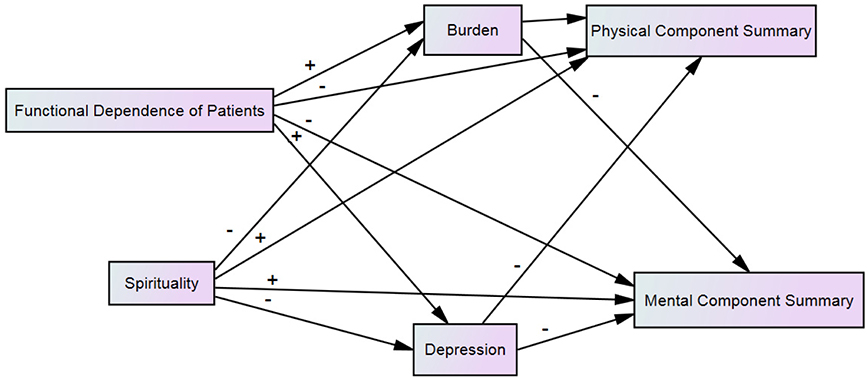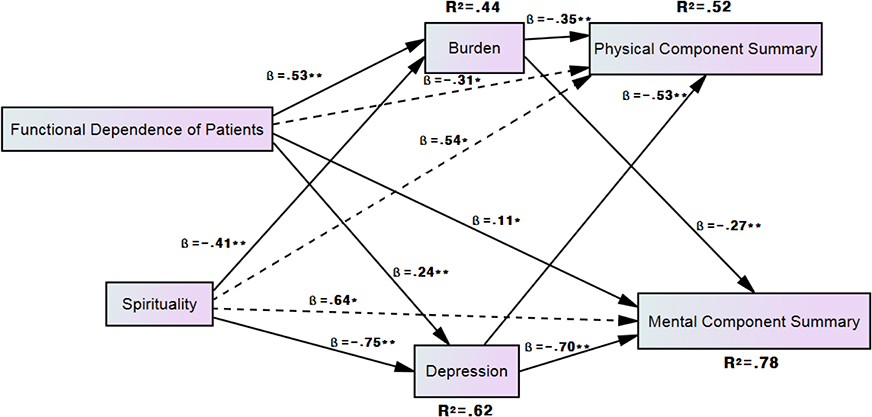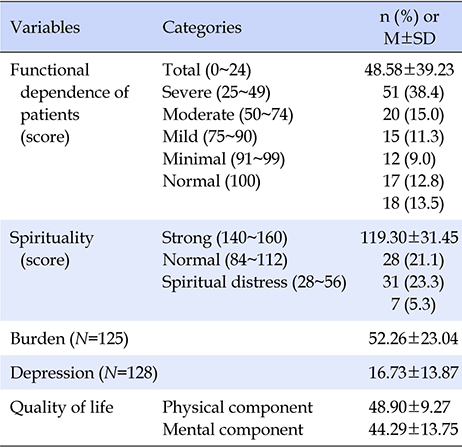1Doctoral Student, College of Nursing, The Catholic University of Korea, Seoul, Korea.
2Professor, College of Nursing · Director of WHO Collaborating Centre for Training in Hospice · Palliative Care, The Catholic University of Korea, Seoul, Korea.
© 2016 Korean Society of Adult Nursing
This is an open access article distributed under the terms of the Creative Commons Attribution Non-Commercial License (http://creativecommons.org/licenses/by-nc/3.0/), which permits unrestricted non-commercial use, distribution, and reproduction in any medium, provided the original work is properly cited.
This article is revision of the first author's master's thesis from the Catholic University of Korea.






FDP=functional dependence of patients; PCS=physical component summary; MCS=mental component summary.
FDP=functional dependence of patients.
FDP=functional dependence of patients; PCS=physical component summary; MCS=mental component summary.
FDP=functional dependence of patients.